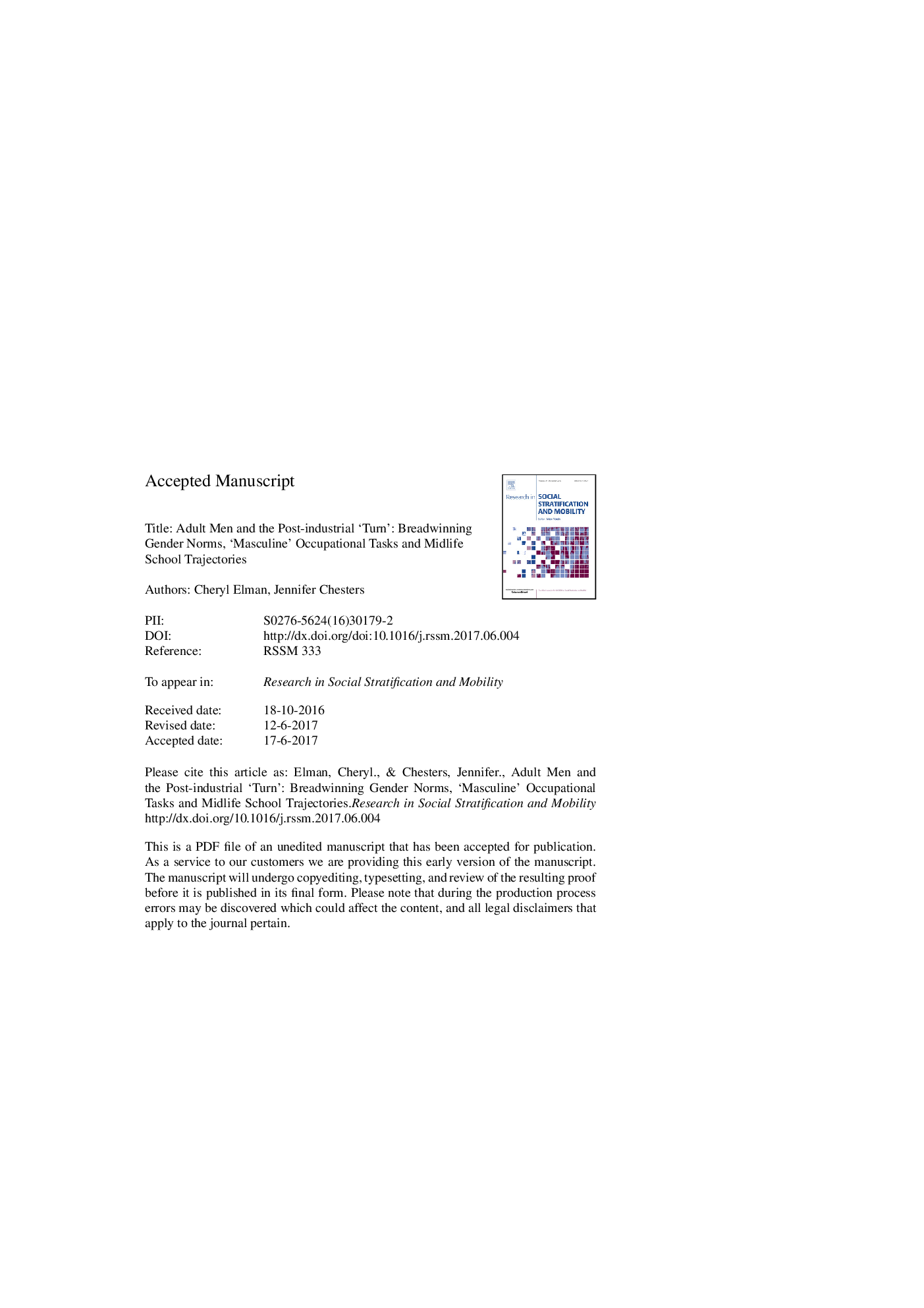| Article ID | Journal | Published Year | Pages | File Type |
|---|---|---|---|---|
| 5106585 | Research in Social Stratification and Mobility | 2017 | 51 Pages |
Abstract
Post-1970s restructuring exacerbated occupational skill and occupational sex-segregation divides by reducing jobs in male-dominated occupations requiring less than college. Economic precarity might have motivated men to extend postsecondary careers into adulthood due to economic interests. However, men's gender socialization as “breadwinners” and familiarity with performance of stereotypically masculine occupational tasks might have discouraged postsecondary attainment in adulthood. Using National Survey of Families and Households data (1987-2003), event history and multinomial methods, we find that adult men's postsecondary entry and completion of baccalaureate and higher degrees was strongly motivated by economic factors, including market precarity. However, traditional gender role attitudes and exposure to masculine task performance, as countervailing forces, significantly constrained men's potential educational gains. We briefly address policies that might reduce adult men's barriers to attainment.
Related Topics
Social Sciences and Humanities
Economics, Econometrics and Finance
Economics, Econometrics and Finance (General)
Authors
Cheryl Elman, Jenny Chesters,
